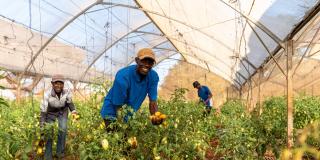
Sadly, global inequality is rising as a result of the COVID-19 pandemic, the impact of the climate emergency and a shrinking civil society space globally. In this context, it's more vital than ever to ensure the voices of the most marginalized are heard in order to drive an inclusive development process.
Our Strategic Ambition
In 2015, governments around the world signed up to the Sustainable Development Goals (SDGs). In delivering our strategy, VSO will focus on three principles underpinning the Goals:
- Leaving no-one behind, which means the Goals include everyone;
- Universality, which means the Goals apply everywhere, in all contexts and without exception, and;
- Integration, that the Goals are interlinked and need to be people-centred if they are to be met.
We have framed our work to align with the SDGs. Within this, our focus has increasingly been on those who have been marginalised or made vulnerable to ensuring that primary actors' voice is heard, and their choices are supported to drive an inclusive development process. The long-term impact of COVID-19 and the growing urgency for climate action only deepen our commitment to delivering on the Goals.
Our ambition remains to bring lasting and positive change in the lives of primary actors and make a significant contribution towards achieving the SDGs. We will work towards this ambition by using the transformational power of volunteering, focusing particularly on those who have been marginalised or made vulnerable.
We have identified four strategic priorities to deliver on this ambition:
- Extend and deepen our impact on issues of inequality and marginalization by taking a rights-based approach and focusing on social inclusion, social accountability, and resilience across our Global Programmes.
- Build Global Engagement to realise achievement of the SDGs by supporting the mobilization of active global citizens across the world.
- Use our Global Leadership to position volunteering as a transformational contribution to delivery of the SDGs.
- Ensure our Operating Model is sustainable and delivers on our commitment to challenging systems and structures that perpetuate inequalities of power and privilege
Our programmes, engagement, leadership and operating model are mutually supportive in delivering our ambition.
Building on our volunteering for development approach
VSO’s volunteering for development (VFD) method provides the opportunity for everybody to bring about lasting change. We focus first on those who are left out by society – those living in extreme poverty, or with disability and illness, those who face discrimination and violence for their gender, sexuality or social status.
These are not passive “beneficiaries” of aid. They are the “primary actors” at the heart of our work. It is from their viewpoint and actions that we seek to define the issues, opportunities, and solutions that deliver sustainable and locally led change.
Through community, national and international volunteers, our VFD method brings together a diverse range of perspectives and experience to gain insights and ideas, and work with local people to address the underlying causes of complex problems facing their communities. By becoming 'active citizens' everyone, everywhere across the globe can drive change to create a fair world for everyone.
Together We Are Changemakers.
What we've achieved so far
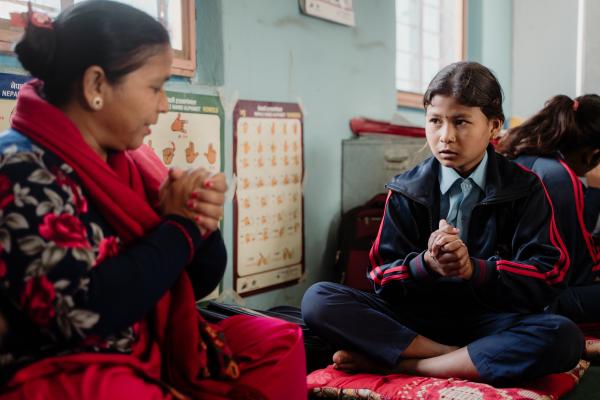
Over the last strategy period 2016-22, we have:
- Developed a high quality, VFD method and theory of change focused on reaching those who have been made vulnerable or have been marginalised;
- Used that method to extend the reach and impact of our global portfolio up from 2m to around 6m per annum between 2016-22;
- Delivered an engagement plan that has established youth volunteer platforms in 17 countries and influenced national policy and practice around the world;
- Consolidated our global leadership position through the development, launch and roll-out of the Global Standard for Volunteering for Development.
At the same time, we have overhauled our operating model:
- Moved from a centralised, large headquarters structure to a distributed leadership model working to a clearly defined strategic framework largely led from Global south.
- Applied our VFD method to scale up projects within our portfolio to build influence and impact.
- Shifted our volunteering model to focus more explicitly on national and community volunteers in addition to international volunteers. Over the last six years, we have doubled the number of volunteers that we have worked with up from the 40,000 that we had worked with between 1958 and 2016 to 80,000 by 2021;
- Adopted a more flexible approach to delivery, building our ability to deliver into fragile contexts using the VFD approach, responding rapidly to new challenges such as Covid-19, and reducing our reliance on physical infrastructure to deliver our programmes.
- Radically reduced our reliance on strategic funding from the UK government and diversified our funding base. UK government funding now represents around 30% rather than 60% of our funding.
The success we have seen reassures us that we are on the right path. There is a strong incentive for the new strategy to be an “evolution” of the “revolution” that we initiated six years ago.
The Changing Context
There is of course, still much to do. Sadly, global inequality is rising as a result of the global pandemic, the impact of the climate emergency and shrinking civil society space globally. Together, these are also threatening the world’s ability to deliver the SDGs.
There are ongoing debates around the future role of international non-governmental organisations and the move to decolonise development. At the same time, global development assistance is increasingly informed by narrow, national geopolitical objectives.
Finally, raising funds for VSO programmes is increasingly competitive, with a saturated public fundraising market and shrinking institutional funding available to organisations like ourselves, this is the context into which our new strategy must respond.
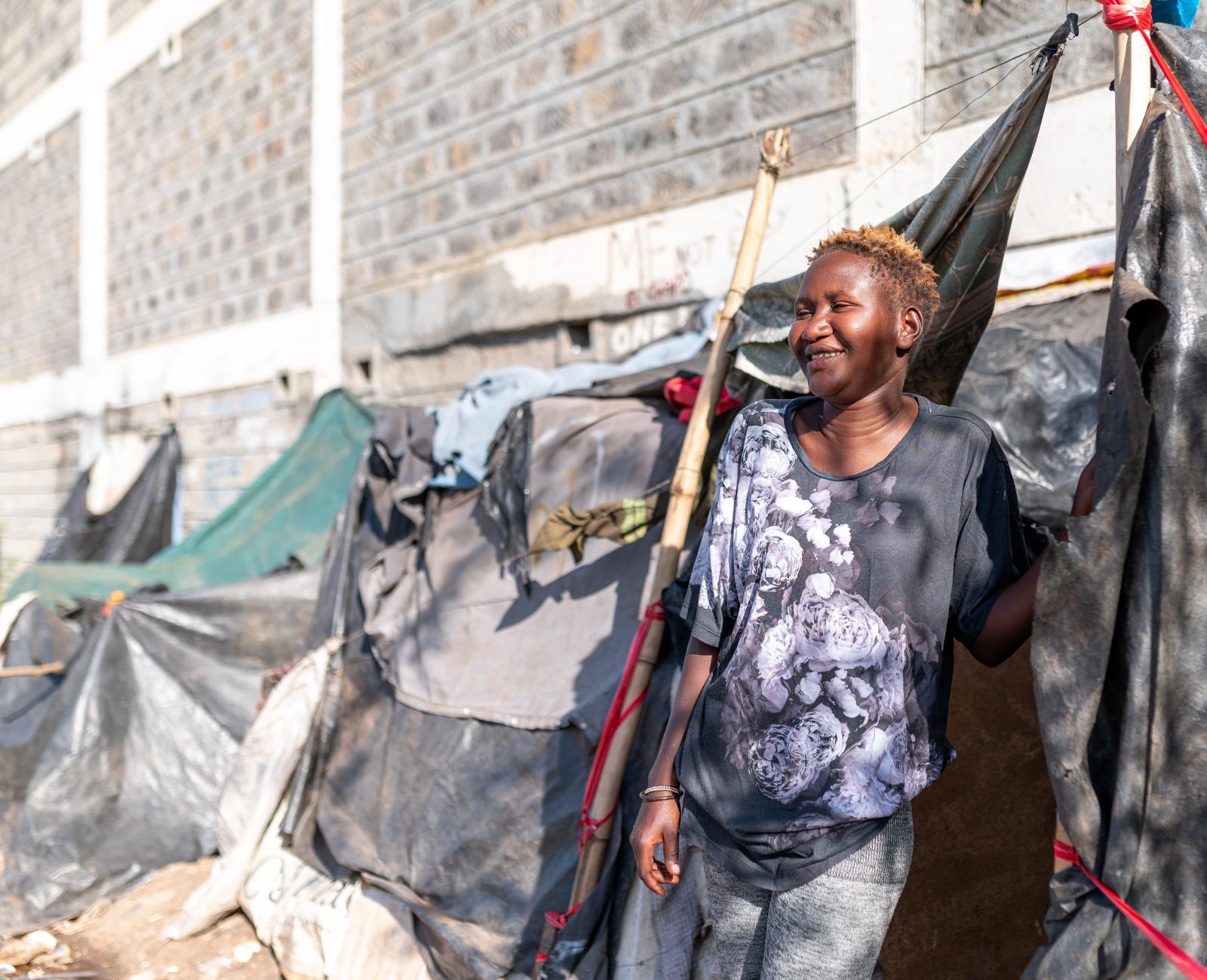
Support us with a donation
Related links
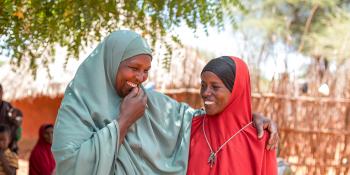
Annual report
Read our full annual report from 2023-24, and download reports from previous years.
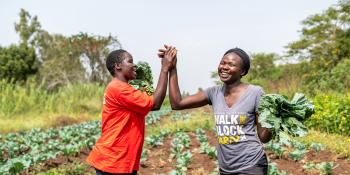
Volunteering for development
Our unique volunteering for development approach puts the most marginalised people first.
